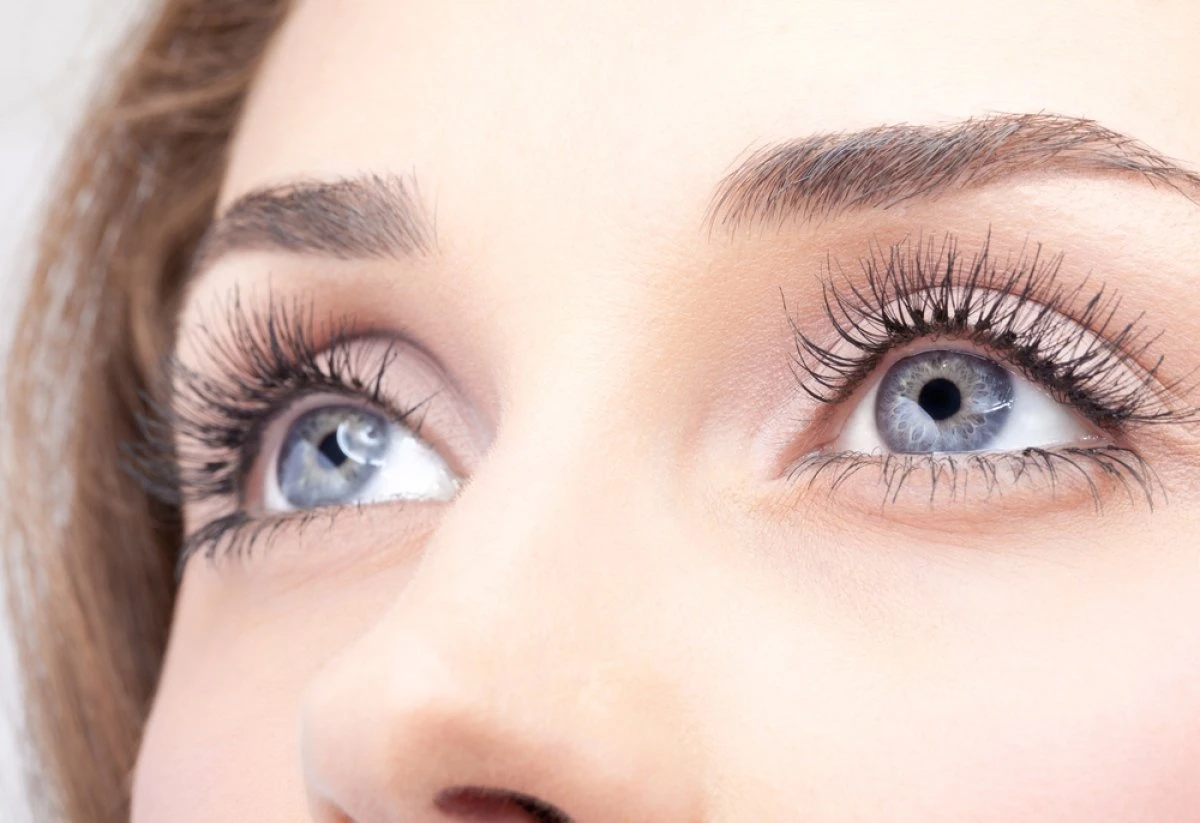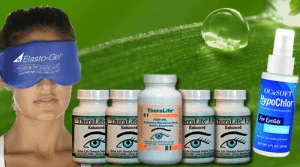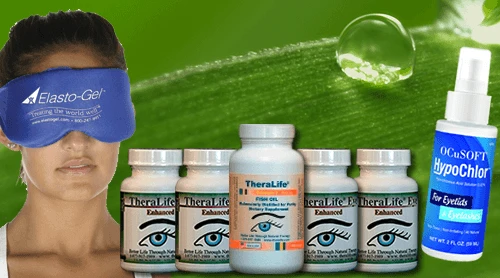Cure Ocular Rosacea: A Guide To Home Remedies And Natural Treatments
Ocular rosacea is a chronic, inflammatory disorder of the eyelids and eyes that can cause redness and discomfort. It is estimated to affect up to 1 in 20 people worldwide.
This article will provide an overview of ocular rosacea, including its causes, symptoms and available treatments. In addition, it will offer guidance on how to manage this condition at home with natural remedies.
The goal of this guide is to help those affected better understand their condition, find relief from its symptoms, and take proactive steps towards managing ocular rosacea long-term.
Looking to cure ocular rosacea? – just like there is no cure for ocular rosacea and chronic dry eyes. However, we can make your eyes feel comfortable, reduce damage and put your life back on track.
Strategies discussed include dietary modifications; lifestyle changes; herbal supplements; eye hygiene measures; and application of topical medications or creams. Through implementation of these strategies individuals may experience improved quality of life due to reduced inflammation associated with ocular rosacea.
Powerful treatment for Ocular Rosacea – TheraLife- Cure Ocular Rosacea
Looking to cure ocular rosacea?
TheraLife has the natural solution to ocular rosacea and dry eyes.
Restore and revive your own tear production, reduce inflammation, recovery with confidence.
Customer Success Stories
I have rosacea and ocular rosacea. I have been struggling with a severe chronic dry eye condition, diagnosed by my ophthalmologist nearly two years ago. None of the treatments prescribed worked – not punctal plugs, antibiotics or prescription eye drops. It was so bad that I was getting corneal abrasions, forcing me to miss work and spend many days lying in bed with my eyes closed. While the steroid eye drop I was prescribed for the corneal abrasions does help, it is not safe to be used on a long-term basis because of the potential side-effects (glaucoma, etc.). My eyes were also extremely sensitive to the sun, even with my sunglasses on. I was beginning to feel totally helpless, as if the quality of my life was slipping away from me, and I couldn’t do anything to stop it! That changed the day I discovered TheraLife Eye Enhanced on the internet. I noticed a marked improvement in my eye condition since taking the TheraLife Eye Enhanced and the TheraLife Fish Oil. It has been two months now. I’m so very grateful that I discovered this wonderful product. It has changed my life for the better, one day at a time!
LM- United States
What Is Ocular Rosacea?
Like many medical conditions, ocular rosacea is a bit of an enigma. Its exact cause remains unknown and risk factors vary from person to person. Ocular rosacea can affect anyone at any age but it’s more common in adults over the age of 30 with fair skin who have had other forms of rosacea such as facial redness or bumps.
Many experts point to environmental triggers like sun exposure, hot weather, stress and alcohol consumption that may increase the likelihood of developing this condition. However, there are no definitive answers as to why some people develop ocular rosacea while others do not.
The symptoms associated with ocular rosacea are often similar for everyone: dry eyes, burning sensation, itching or stinging around the eyes, light sensitivity, blurry vision and even swollen eyelids. Although these signs aren’t necessarily life-threatening they can be uncomfortable and interfere with one’s daily activities like driving or working on computers.
In extreme cases untreated ocular rosacea can damage the cornea leading to scarring and sight impairment.
Fortunately, there are several home remedies available to help manage the effects of ocular rosacea including avoiding harsh cleansers and using artificial tears frequently throughout the day. Eating a healthy diet rich in vitamins A, C & E has also been shown to reduce inflammation around the eye area which helps alleviate some discomfort caused by the condition. Additionally, wearing sunglasses when outside reduces UV exposure which can trigger flare ups so it’s important to take preventive measures whenever possible.
With proper treatment and lifestyle modifications most people with ocular rosacea find relief from their symptoms quickly which makes living a normal life easier than ever before!
Signs And Symptoms Of Ocular Rosacea
Ocular rosacea is a condition that affects the eyes, and can cause serious discomfort. It is important to understand the signs and symptoms associated with ocular rosacea in order to better manage the condition.
The most common signs of ocular rosacea include:
– Redness around the eye area
– Burning or stinging sensations in the eyes
– Watery or dry eyes due to irritation
– Blurred vision caused by inflammation of the eyelid margins
– Sunlight sensitivity and light sensitivity
In some cases, it may also be accompanied by conjunctivitis (inflammation of the outer membrane surrounding the eyeball) as well as blepharitis (inflammation of the eyelids).
Left untreated, this inflammatory disorder often progresses over time, leading to chronic conditions such as corneal ulcers or scarring on the surface of your eye.
It’s important for those who have been diagnosed with ocular rosacea to seek treatment from an optometrist or other healthcare provider in order to avoid further worsening of their condition.
With proper medical care and lifestyle changes such as avoidance of triggers like UV exposure, dietary changes, stress reduction techniques, and use of gentle skin care products made specifically for sensitive skin—ocular rosacea can be effectively managed. These steps will help reduce flare ups and improve overall quality of life.
The next step is understanding what causes ocular rosacea so that we can take preventive measures against it.
Causes Of Ocular Rosacea
At first glance, it may seem ironic that something as seemingly simple as ocular rosacea could have a range of causes. However, the numerous potential triggers can make it difficult to determine what is causing an individual’s symptoms. This makes it difficult to cure ocular rosacea.
The most common cause of this eye condition is considered to be inflammation due to certain bacteria on the skin or in the eyes. This inflammation leads to redness and irritation around the eyes, as well as increased sensitivity and burning sensations. In some cases, there may also be skin flushing present when exposed to heat or cold temperatures.
Other possible causes include environmental factors such as sun exposure or wind, hormonal changes in women during menstruation or menopause, stress, allergies and dietary habits.
While these are all contributing factors for many patients with ocular rosacea, it is important to note that not everyone will experience the same symptoms at different stages of their lives – sometimes they can even appear suddenly without any apparent cause. Therefore, medical treatments should always be sought out if more serious signs arise beyond just mild discomfort and eye irritation.
With proper diagnosis and treatment plans tailored specifically for each patient’s needs, individuals suffering from ocular rosacea can look forward to improving their overall vision health and quality of life. Transitioning into discussing medical treatments for ocular rosacea offers hope for those who suffer daily from its effects; providing them with options for relief so they can take back control over their own sight health.
Help you cure ocular rosacea with knowledge and understanding.
Medical Treatments For Ocular Rosacea- cure ocular rosacea
Ocular rosacea may also be treated with several medical interventions. Eye drops and topical creams are the most common treatments prescribed by doctors. These medications can help reduce inflammation, redness, swelling and other symptoms associated with ocular rosacea.
For example, one of the most commonly used eye drops is brimonidine tartrate which helps to reduce blood vessel dilation in the eyes as well as reduce vascular leakage and constrict blood vessels. Additionally, certain topical creams such as metronidazole cream or hydrocortisone cream can help control flare-ups when applied directly to affected areas on the eyelids and around the eyes.
It is important for patients to follow their doctor’s instructions closely when using these medications. In some cases, it may take up to two weeks before any noticeable improvements are seen from use of these drugs. If side effects occur while taking them, discontinue use immediately and contact a physician for further advice.
It should also be noted that long term use of steroidal based creams can lead to thinning of skin tissue so they should not be used without first consulting a healthcare provider.
When seeking treatment for ocular rosacea, it is essential to monitor signs and symptoms carefully over time to ensure medication effectiveness and safety. Combining lifestyle changes such as dietary modifications along with medical therapies has been found to provide better results than either approach alone.
With this holistic approach, many people who suffer from ocular rosacea have been able to find relief from their condition through careful management of both diet and medication usage. Transitioning now into discussing dietary modifications for ocular rosacea will further explore ways individuals can manage this condition holistically.
Dietary Modifications For Ocular Rosacea- cure ocular rosacea
Dietary modifications are an important part of managing ocular rosacea. In order to reduce inflammation and avoid triggers, it is essential for those with the condition to be mindful about their food choices:
* Consume more omega 3 fatty acids. Foods such as salmon, sardines, flaxseed oil, and walnuts are excellent sources of these anti-inflammatory compounds.
* Increase consumption of antioxidant rich foods including fruits and vegetables such as berries, apples and spinach. These can help protect against free radical damage caused by environmental factors that may worsen symptoms of ocular rosacea.
* Reduce consumption of processed or packaged foods which often contain additives that can trigger flare-ups in individuals with this condition.
Making dietary changes can have a significant impact on the severity and frequency of ocular rosacea flares. With careful consideration around food selections, patients may find relief from their symptoms while still enjoying tasty meals.
As the next step in managing ocular rosacea, lifestyle adjustments should also be taken into account….
## Lifestyle Changes For Ocular Rosacea
The key to conquering ocular rosacea is making lifestyle changes. Like a ripple on the surface of a pond, these changes can create far-reaching effects that bring relief from this chronic and often debilitating condition.
To begin with, stress management is essential for those suffering from ocular rosacea; they must learn how to recognize their triggers and find ways to manage them effectively. Facial exercises are another tool in the arsenal against ocular rosacea. Simple techniques like pursing lips, closing eyes tightly shut, or raising eyebrows can help reduce inflammation of the eye area.
Additionally, dietary modifications may be helpful as well. Limiting alcohol consumption and avoiding spicy food may help reduce flare-ups associated with ocular rosacea. Eating an anti-inflammatory diet rich in omega 3 fatty acids such as walnuts and avocados can have beneficial effects too. Also, drinking plenty of water each day helps keep skin hydrated which reduces redness and puffiness around the eyelids caused by irritation or infection.
It’s important to remember that everyone’s experience with ocular rosacea is unique, so what works for one person might not work for everyone else. With patience and persistence though, it is possible to discover effective treatments that lessen symptoms and improve quality of life significantly over time.
Moving forward then, herbal supplements could be explored next as potential remedies for managing ocular rosacea more effectively.
Herbal Supplements For Ocular Rosacea- cure ocular rosacea
Herbal supplements can be beneficial in the treatment of ocular rosacea, as they can reduce inflammation and irritation.
However, it is important to be aware of potential risks associated with herbal supplements and consult a health care provider prior to starting any herbal supplement regimen.
The safety of herbal supplements is dependent on the specific supplement and the conditions of the individual, and side effects should be monitored closely.
Research has found that certain herbal supplements may be effective in treating ocular rosacea, but further studies are necessary to determine their full efficacy.
Herbal Supplement Benefits- cure ocular rosacea
Herbal supplements have been utilized for centuries to help treat a variety of ailments. As such, they may be beneficial in treating ocular rosacea as well.
The utilization of herbal supplements can provide skin care benefits as well as stress relief when used correctly and under the guidance of a qualified medical professional.
Herbs like chamomile, licorice root, peppermint leaf, and green tea extract are known to reduce inflammation associated with ocular rosacea symptoms and can be taken either orally or applied topically.
Additionally, herbs like lavender oil can aid in reducing anxiety levels which is often an underlying factor that contributes to this condition.
Taking preventative measures by avoiding triggers such as long exposure to wind or sun can also improve the efficacy of any treatment plan involving herbal supplements while preventing further flare-ups from occurring.
With proper usage and regular monitoring from a health care provider, individuals afflicted with ocular rosacea may find symptom relief through supplementation with herbs.
Herbal Supplement Safety- cure ocular rosacea
When utilizing herbal supplements to treat ocular rosacea, safety must be taken into consideration. As with any form of medication or treatment plan, it is important to research the possible side effects and contraindications that may arise from taking certain herbs in conjunction with other medications or health conditions.
While many people find relief through supplementation, there can be risks associated with ingesting or applying certain herb extracts without proper guidance from a qualified professional. Furthermore, potential environmental triggers should also be avoided by limiting long exposures to wind or sun which could worsen existing symptoms.
In order to ensure the safest use of these supplements for skin care purposes related to ocular rosacea, individuals should consult their doctor before beginning any supplement regimen. This will help determine if an individual’s current medications or medical history have conflicting interactions with herbal treatments and provide further advice on dosage amounts and duration of usage.
Additionally, regular monitoring of progress is recommended during treatment as well as afterwards in order to note any changes in symptom severity due to the supplementation therapy being used.
Herbal supplement safety is essential when treating ocular rosacea; therefore individuals should take precautionary steps such as consulting their physician prior to initiating a supplement regimen while simultaneously avoiding known environmental triggers that could potentially aggravate existing symptoms.
Eye Hygiene For Ocular Rosacea- cure ocular rosacea
Eye hygiene is an important part of managing ocular rosacea. Simple steps, such as removing contact lenses before bed and regularly cleaning the eyes can help reduce inflammation associated with this condition. It is also essential to avoid any irritants that could worsen symptoms.
Individuals should be sure not to rub their eyes, which can cause further irritation and lead to infection. Wearing sunglasses when outdoors helps protect the delicate skin around the eye from environmental elements like dust or wind. Additionally, it is recommended to use artificial tears throughout the day in order to soothe dryness caused by ocular rosacea.
Simple lifestyle changes are key for reducing symptoms related to ocular rosacea and keeping flare-ups at bay. Staying hydrated, eating a balanced diet, getting plenty of restful sleep, avoiding stressors, and limiting alcohol consumption all contribute towards improved overall health and well-being, thus leading to better management of ocular rosacea.
Furthermore, treatments prescribed by healthcare professionals may also need to be followed accordingly in order to keep symptoms under control. Taking measures to ensure healthy eye hygiene practices along with other preventive strategies will ultimately improve outcomes for individuals living with ocular rosacea.
Frequently Asked Questions- cure ocular rosacea
What Is The Best Way To Prevent Ocular Rosacea From Getting Worse?
The best way to prevent ocular rosacea from getting worse is by managing flare-ups and reducing inflammation.
Preventative measures should be taken such as avoiding triggers which can aggravate the condition, implementing an effective skin care routine with gentle products, ensuring adequate hydration throughout the day, and taking steps to reduce stress levels.
Additionally, using medications that are designed to target the underlying causes of ocular rosacea may help significantly in preventing further worsening of symptoms.
Are There Any Long-Term Side Effects Of Using Natural Treatments For Ocular Rosacea?
The use of natural treatments for ocular rosacea has the potential to lead to long-term side effects, such as eye irritation and dryness.
While it is possible to reduce symptoms through making dietary changes or practicing good hygiene, these methods may not be suitable for everyone in the long run.
Additionally, if a person does not take proper precautions when applying topical remedies like tea tree oil or honey, they can be at risk of increased inflammation and other unwanted skin reactions.
It is therefore important to consult with a healthcare professional before choosing any form of treatment for ocular rosacea.
Are There Any Over-The-Counter Medications That Can Be Used To Treat Ocular Rosacea?
Although there are a variety of home remedies and natural treatments available for ocular rosacea, including dietary changes, stress relief and lifestyle modifications, over-the-counter medications may also be used to treat this condition.
Such medications typically contain topical antibiotics or anti-inflammatory agents which can help reduce redness in the eyes caused by inflammation associated with ocular rosacea.
Is Ocular Rosacea Contagious?
Ocular rosacea is not considered a contagious condition, and it cannot be spread from person to person.
However, some of the triggers that cause symptoms of ocular rosacea can increase susceptibility to flare-ups among those who have the condition.
Therefore, reducing stress levels and avoiding known triggers are important strategies for managing this chronic skin disorder.
Is There A Difference Between Ocular Rosacea And Other Types Of Rosacea?
Ocular Rosacea is a type of rosacea that affects the eyes. This form of rosacea can cause redness, swelling and irritation in the eyes and eyelids, as well as dry eye, blurry vision, light sensitivity, styes or cysts on the edge of the eyelid.
It is distinct from other types of rosacea because it carries additional risks such as corneal damage due to inflammation. Risk factors for ocular rosacea include having fair skin, being female and between 30-50 years old, and environmental triggers such as stress and exposure to extreme temperatures.
Conclusion- cure ocular rosacea
Ocular rosacea is a chronic, inflammatory condition that can cause redness and irritation in the eyes. Although symptoms may vary from person to person, this condition cannot be cured but it can certainly be managed with natural treatments or over-the-counter medications.
By following a comprehensive regimen of lifestyle modifications, maintaining good hygiene practices and using natural remedies, individuals suffering from ocular rosacea can find relief from their symptoms and prevent worsening of the condition.
With proper treatment and care, people with ocular rosacea can achieve long-term remission of their symptoms.
Therefore, if you are struggling with ocular rosacea, consider seeking medical advice and exploring the available natural treatments for an effective management plan tailored to your individual needs.
By taking proactive steps towards conquering your ocular rosacea today, you can pave the way for better vision tomorrow!
Look to TheraLife for cure ocular rosacea.
References





